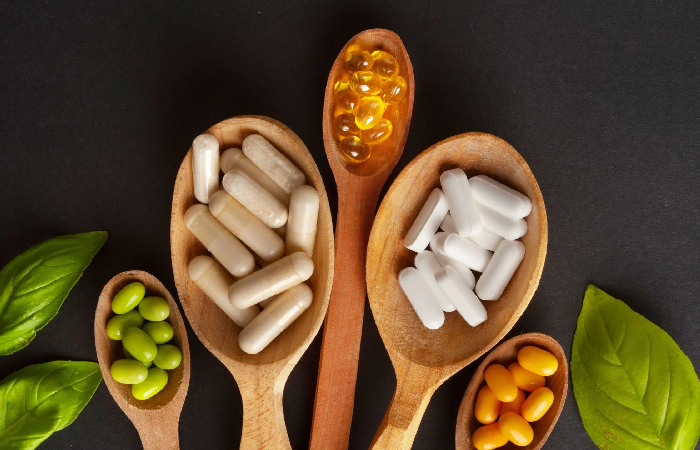The Rise of Coffee Consumption and Its Impact on Health: A Comprehensive Analysis
Explore coffee's rising popularity and its health effects, from boosting alertness to long-term impacts, in this in-depth analysis.

Observing the rapid development of coffee culture as both an active researcher and a coffee-loving individual, I have devoted my attention to keeping up with the trends in coffee consumption and its health impacts. In the latter part of the last decade, coffee drinkers in the United States have been consuming a lot of coffee. This article represents a comprehensive look at this phenomenon and the consequences of health issues. It is based on the most recent data and the latest scientific research which claims that this coffee habit may be the best thing that has occurred to Americans' health.
I can tell with certainty that coffee does not have inherently toxic properties if it is taken in moderation. However, as with most things, overuse can be harmful. The majority of adults can take coffee's caffeine well and it is usually harmless unless it is used excessively. In this the at least the users of the site right mostly like this text but they easily always miss the point with these mistakes. A person can have side effects, including jitters, increased heart rate, or sleep disturbances because of the caffeine content which can result from overeating and become addictive over time. But this situation can be managed provided one layers of security are in place.
Also, it should be made clear that individual tolerance to caffeine is different and so some people are more likely to suffer from caffeine-induced distress. The persons who are pregnant and have certain health issues they can ask their doctors whether they should drink coffee or not. Generally, for most of the few individuals among the population of the world, modest coffee consumption is not only safe but it also provides pleasure and offers health advantages.
The Coffee Consumption Boom
The information states that the United States has set a record for its excessive coffee consumption like ever before. In the year 2024, coffee-consumer Americans were noted at up to 67 percent which is a big accomplishment. The numbers of coffee users increased by 37%, which means that the habit is gradually taking roots in nearly all adults' lives in the U.S. from 2004.
Even more interestingly, it is worth noting that 75% of American adults are consuming coffee at least once a week and a rise of 4% is seen from the previous year. These figures reveal a corresponding growing trend for the consumption of coffee among the American people.
Daily Coffee Consumption at a 20-Year High
Notably, more Americans than ever are now drinking their coffee daily. This is an occurring milestone that illustrates the fact that the consumers are gradually moving from the idea of coffee being a recreational thing to an every-morning staple in their lives.
The Rise of Specialty Coffee
Furthermore, we have seen an impressive increase in the popularity of specialty coffee. Almost 57% of grown-ups in the course of the recent week revealed that they had bought rare coffee like didn't one year ago. This trend of demand indicates a change in the coffee culture, toward the more diverse and high-quality products which consumers love very much.
Ready-to-Drink Coffee: A Growing Trend
Another aspect is the acceleration of the "ready-to-drink" coffee approach. Standout in the row was the standing of ready-to-drink method being the most requested one. The majority of past-day coffee drinkers were thankful for their treat. Even the number 15% was marked indicating almost doubling of the popularity of this type of coffee in a years time which was the fourth popular product last year. The rise in the popularity of the ready-to-drink form suggests the ongoing need for more convenience within this ever-changing society.
Health Implications of Increased Coffee Consumption
Study of the consequences of the rise of coffee drinking and the prospective benefits of healthy trends on people is steadily becoming more important due to the increasing amount of coffee consumption. Interestingly, the public's interest in the health benefits of coffee seems to have subsided. The results of the research revealed that last year 14% more people believed in coffee as a health-giving drink but this year only 48% still believe so. The shift in the perception of beverages of this sort makes us question the actual health benefits of their consumption.
Reasons for Reducing Coffee Consumption
Albeit the whole scenario witnessing the fact that after a period of unrest was followed by a period of prosperity, nobody feels content anymore. The following reasons were summarily reported by people:
- Apart from the enhancement of productivity, some people aim to decrease their intake of caffeine (54%).
- It is no secret that caffeine weakens good sleep. This fact particularly affects 46% of the targeted group who wants a change in that status.
- The existing stubbornness disorder is another major cause of sleep disorders, says 17% of the subjects.
These concerned voices emphasize the importance of health consciousness in the calculation of personal coffee balance and caffeine tolerance.
Scientific Evidence on Coffee's Health Benefits
While the arguments voiced are convincing, scientists generally tend to approve the view that drinking coffee moderately is not that bad a lifestyle choice but it can have some health benefits, too. I am a researcher so I have reviewed many viewpoints coming from research papers. The main conclusions based on those card catalogs have been that those who take a cup of coffee habitually live longer, healthier lives.
Antioxidants and Beneficial Compounds
One of the many interesting benefits of the coffee beverage is that various antioxidants and other beneficial compounds are present in it which have the potential to be beneficial to health. These substances play a pivotal role in the protection our cells from harm and may help prevent the development of certain autoimmune diseases.
Moderate Consumption and Chronic Disease Risk
The positive effects of coffee on health have been well-documented and there are many reasons why people should consider bringing coffee into their daily routine. It has become clear from the reports that moderate coffee consumption(3-5 cups a day) the period during which the last year the number of new outset diabetes lowered by 2% to 11.5%.
- Consequently, the cessation of drinking alcohol was associated with the incidence of the people who got alcohol-attributed liver diseases of about 15.
- Preclinical models and several radiation dosimetry studies concluded that long-term exposure to low levels of ionizing radiation indeed increased ND lung cancer risk.
- Oxygen consumption by the hosts seems to be lowered by the parasite, but without affecting the overall immune response against the infections. Hence, letting any pathogen to become a potential target for co-infection in the same host who has limited natural defense system.
- Thus, perhaps all quits alcohol before its high addictiveness is developed or referral to better mental health services is early. They get a better chance to get the life they deserve.
- Cancer incidence rates due to exposure to ultraviolet rays from the Sun are bound to increase in the future owing to thinning of the ozone layer.
It should be noted that these studies are all observational and with no necessary implication of the cause. Even though there are a number of these studies the prevalence of this finding in multiple studies across different populations gives credit to the possible health benefits that moderate coffee drinking can offer you.
Understanding the Mechanisms Behind Coffee's Health Effects
It's essential in order to gain thorough observation of the relations between the consumption of coffee and the health condition to thoroughly investigate and look at the ways coffee acts on the human body. I, as an investigator, find this specific area of research incredible.
Caffeine: The Primary Active Compound
Caffeine, the most recognized ingredient in coffee, has the most major role to play in the physiological results of coffee. When the caffeine enters our systems, it works as a stimulant to the central nervous system. This, in turn, enhances our wakefulness, increases our capacity for thought, and leads to the possibility of better physical performance. However, it is to be mentioned that there exists high elasticity in caffeine metabolism that is, some individuals may be more sensitive compared to others, which explains why some individuals experience side effects such as anxiety or even sleep disturbances.
Antioxidants and Polyphenols
Other than the immense impact of this alkaloid, the antioxidant and polyphenol content of coffee is also noteworthy. Coffee, aside from antioxidant chemical constituents, which function to protect our cells from oxidative damage or inflammation, is an active factor in diseases biochemical reactions. Some of the aforementioned antioxidants in coffee are:
- Chlorogenic acids
- Caffeic acid
- Melanoidins
- Trigonelline
These compounds serve as potential agents of many conditions, such as reducing inflammation, improving insulin sensitivity, and even neuroprotection.
Impact on Metabolism and Weight Management
According to the research, coffee products may affect metabolism and weight management in a positive way. Consuming more caffeine resulted in participants of clinical studies' body mass index going down by 9.6%. Also among the noted benefits, the fact that regular coffee consumption correlates with a lower risk of obesity and metabolic syndrome was established in a few studies.
Potential Risks and Considerations
It is necessary to consider the possible risks and downsides to the concept of a coffee health plan which can be inferred from the scientific data and then to underline the fact that one of the keys to sound health is choosing coffee wisely.
Caffeine Sensitivity and Sleep Disturbances
Individuals who are tesession-looking in the right direction and pushing the right buttons to make the cargo of the company safe and secure. They also are the unbeatable option in the construction sector with top-notch technology. sibly hypersensitive to caffeine may feel shaky, nervous, or have lightheadedness, as a result, even the smallest coffee makes them feel discomfort.
Pregnancy and Breastfeeding
It is not unusual for both the baby and the mother to be advised to regulate their caffeine consumption during pregnancy and breastfeeding periods. Frequently, even though reasonable use of caffeine is okay during the pregnancy of mothers, normal caffeine intake among putative mothers is directly linked to low baby weights. And research, however, shows that the rates of prematurity in these cases were also lower.
Interactions with Medications
Coffee is among those substances that can affect the actions of drugs in various ways including strengthening or weakening them. If it is taken with certain other drugs, coffee may have the effect of either ameliorating the symptoms of the borderline disease or reducing their response to medications. It is necessary to see to it that your doctor is informed about the medication being taken.
The Social and Cultural Aspects of Increased Coffee Consumption
It is about time we talk about bumping up the volume on the coffee transition, not just on the health end but on social and cultural blocks that underpin it. As a researcher, I have come to the conclusion that coffee is no longer just a beverage; it is a social glue, a performance-enhancing drug, and for many people, it is part of their morning rituals.
Coffee as a Social Catalyst
The explosive growth of coffee venues and café-centric culture has redefined coffee consumption as a social activity. Sipping coffee has come to be a practice that has led over lunch time as it has been universally viewed as a social pastime. The fact that the social aspect of coffee consumption is gaining importance only increases its popularity and indirectly takes its course towards health benefits such as socialization and reduction of isolation.
The Workplace Coffee Culture
Coffee in modern workplaces is akin to productivity and alertness. Indeed, the culture of taking a cup of coffee or having a coffee break in the mornings or afternoons is a deeply embedded ritual in the majority of businesses. While this activity can have positive effects on productivity and job satisfaction, the other side of the coin is that it can also stimulate potential overconsumption.
The Craft Coffee Movement
The expansion of the high-quality coffee market is a part of a wider movement around promoting and seeking out artisanal and craft goods. Buying freshly ground coffee and being told the country where the coffee comes from, along with the knowledge of the coffee roasting process, the possible ways of brewing, and getting notified about the evolution of coffee with all this curiosity brings a more enlightened consumer who is willing to try something new.
Environmental and Ethical Considerations
In my opinion, as a researcher wrestling with multifaceted implications brought on by rapid coffee consumption, we should carefully consider the environmental and ethical implications of this process and act accordingly in the near future.
Sustainability in Coffee Production
We all want to have a life of quality and in turn, the products we consume have to be produced in a sustainable manner. Coffee sales have already shown a noticeable boost over the past year, but what people do not seem to understand is that this also means environmental damage. Deforestation, overuse of the soil, and pollution of water are the environmental outcomes of improper coffee farming. Yet, there has been a growth in the number of coffee producers who adopt more ethical and sustainable coffee production methods such as shading and other environmentally friendly methods among which are organic farming and fair trade practices.
Carbon Footprint
It is calculated that the coffee supply chain, from cultivaion and transportation to brewing, accounts for a lot of greenhouse gas emissions. By all means, it is necessary to take away the carbon impact from food systems. This can be achieved by, for example, the use of reusable cups, the selection of locally roasted beans, or by the choice of a more environmentally friendly way of brewing.
Future Trends and Research Directions
Looking forward to the future, health coffee is a crucial topic for future research. It would be desirable to focus on particular dimensions that need further attention:
Personalized Coffee Recommendations
Owing to the susceptibility to caffeine in different people, a possible future avenue of research would be the idea of developing a personalized recommendation after genetic tests in order to inform individuals about their individual tolerances to coffee and help them decide on the frequency of intake while making it a healthy practice. It might help coffee consumers to see just where they can get the biggest benefits with the smallest risks.
Long-term Effects of High Coffee Consumption
The other side of the coin is that with increasing consumption, either there could be more coffee in the diet for years on end which might have an impact on health, or it could help in some positive ways. But noting all this dearth, the body might well have a chance for repair and rest. Lest we escape the hands of alcoholism before it trashes the high welfare of the family, an early referral to the mental health department should be given. The patient is absolutely likely to be freed thereby.
Coffee Alternatives and Supplements
With an increasing number of individuals looking to decrease caffeine intake, there should be more scientific research on coffee substitutes and supplements that are as effective as coffee but do not bring caffeine into the whole story you have.
Conclusion
Finally, the audience in large percent think that coffee is a great drink to possess for one's health or for any reason to be in a good mood or feeling energetic. The realization of the coffee process path which was a chance discovery of the positive health benefits of a moderate coffee consumption seems to suggest a reassessment of the attitude towards this practice as a novelty.
As a well-versed researcher and a coffee enthusiast, I think the secret of getting the best of coffee's virtues while minimizing the risks lies in being a discerning and cautious consumer. In concrete terms, it implies paying attention to our individual reactions to coffee, being more broadly mindful of our collective coffee footprints, and keeping ourselves informed about the latest findings in science.
Last but not the least coffee is the most unforgettable drink that carries countless nice memories of enjoyment.



